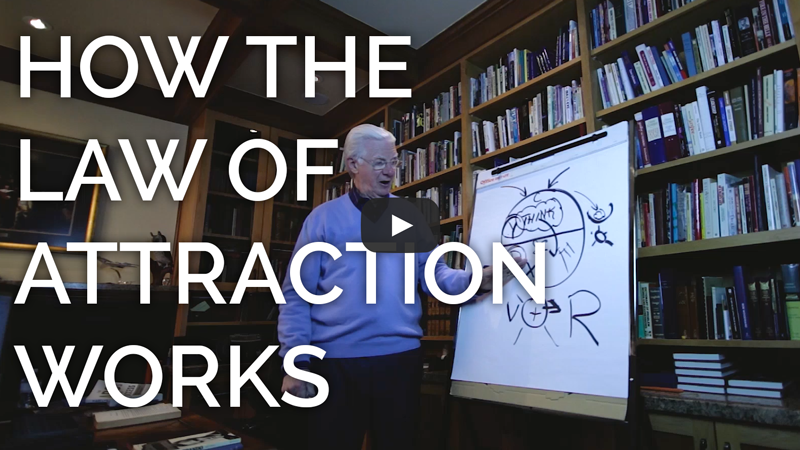
Over the course of our lifetime, we come across hordes of people who do good work.
And every now and then, we find someone who does work that stands way above the crowd. Someone whose work is exemplary and will not soon be forgotten.
How do they do that? What causes these people, the relative few, to do work that is extraordinary?
The answer may surprise you.
While they share many of the same positive characteristics, in most cases, the men and women who do outstanding work weren’t born with the traits that produce this remarkable effort.
Instead, they chose to develop them.
Why?
Because at some point in their lives, these people decided that they wanted to live the finest life possible. And they knew to accomplish that they had to do work that pursued their loftiest dreams.
An interesting question for you…
Do you think the work you’re doing this year will be recognized and admired – still serving people, still making a difference – centuries from now?
Most people – if they answered this question honestly – would have to admit that their work wouldn’t have that sort of lasting impact.
This question came to Bob and me when we visited Reich’s Museum in Amsterdam, and stood there admiring Rembrandt’s masterpiece, “Nightwatch.”
Rembrandt painted “Nightwatch” in 1642 – at least that is the date marked on the painting. Although we are not art critics, we were fascinated by the detail and perfection in his work.
As we were taking it all in, we began to think of how long ago he painted this picture and that the world still enjoys his efforts.
It is estimated that Rembrandt invested one year of his life in this single painting. We seriously doubt that each day, as he picked up his brush and mixed his paint, that he was telling himself, “This painting must be of such great quality that it will be enjoyed for centuries.”
Nonetheless, as you study this classic, it is evident that each day, Rembrandt gave the best he had to give.
Will someone say that about your work 300 or 400 years from now? Or even 50 years from now? Do you care?
If you do care, you might want to follow this advice from a man named Robert Russell: “There’s no secret to becoming great or doing great work. You simply do little things in a great way every day.”
You might laugh at this idea
If you give your best today, it might make a significant difference decades, possibly even centuries, from now.
Rembrandt probably would have laughed at this in 1642 – but he still gave his best.
Does giving your best every day mean that you will immediately and always succeed? Not necessarily. But your efforts will eventually pay off in the end.
Theodore Roosevelt put it this way:
“The credit belongs to the person who is actually in the arena, whose face is marred by dust and sweat and blood, who strives valiantly; who errs and comes short again and again; because there is not effort without error and shortcomings. He who does actually strive to do the deed; who knows the great enthusiasm, the great devotion, who spends him/herself in a worthy cause, who – at the best – knows triumph in the end and who –at the worst, fails while daring greatly – he knows his place shall never be with those cold and timid souls who know neither victory nor defeat.”
Three things to do to leave your mark
People who do great work generally have the following three things in common:
- They are focused.
- They follow a systematic approach.
- They have a sense of urgency.
There’s a difference between having a sense of urgency and rushing through one’s day – tackling or being tackled by random urgent matters as they pop up on the radar. Hurry and panic are mental states that individuals experience whenever they have a lot to do and have no systematic approach to getting it done.
People who are doing great work do a tremendous amount of work in a minimum amount of time. Each day, they focus on doing activities that count by making a list of projects to complete. Their sense of urgency automatically detects those projects that are goal-oriented and that call for immediate attention. They immediately act on those projects to successful completion.
People who act with a sense of urgency aren’t just busy for the sake of busy-ness. They are effective because they have this tremendous focus with respect to goal-oriented matters that need to get done.
What are you committed to?
Realize that the greatness you develop and the sense of urgency you operate with will always be in direct proportion to your commitment to your results insofar as any project is concerned.
Becoming great at anything calls for you to keep going when things become difficult. The commitment must be strong. And your energy cannot be wasted—it must be focused.
You will find, if you haven’t already, that the length of time it takes you to form the habit of urgent, daily action – will depend on your degree of commitment to your goal.
Many people out there will say they want something.
Some will believe that it is truly accessible to them.
Few will begin to take action toward reaching that goal.
Fewer still will lay out a systematic plan involving multiple steps that will, indeed, help them achieve that goal.
And even fewer will manage to stay on track with that sense of urgency as they move through the steps toward their goal.
Which group will you choose to fall in with your next goal or project? Are you committed to giving your work, your goals and your life your best?
Leave a comment and let me know.
To more and better,
Sandy Gallagher
[Tweet “WANTED: People who want to live the good life: http://bit.ly/2n1jZkn #bobproctor”]
[wpdevart_facebook_comment curent_url="www.pgistaff.org/24797/are-you-giving-your-best" order_type="social" title_text=" " title_text_color="#000000" title_text_font_size="22" title_text_font_famely="Arial" title_text_position="left" width="100%" bg_color="#FFFFFF" animation_effect="none" count_of_comments="10" ]
" title_text_color="#000000" title_text_font_size="22" title_text_font_famely="Arial" title_text_position="left" width="100%" bg_color="#FFFFFF" animation_effect="none" count_of_comments="10" ]







